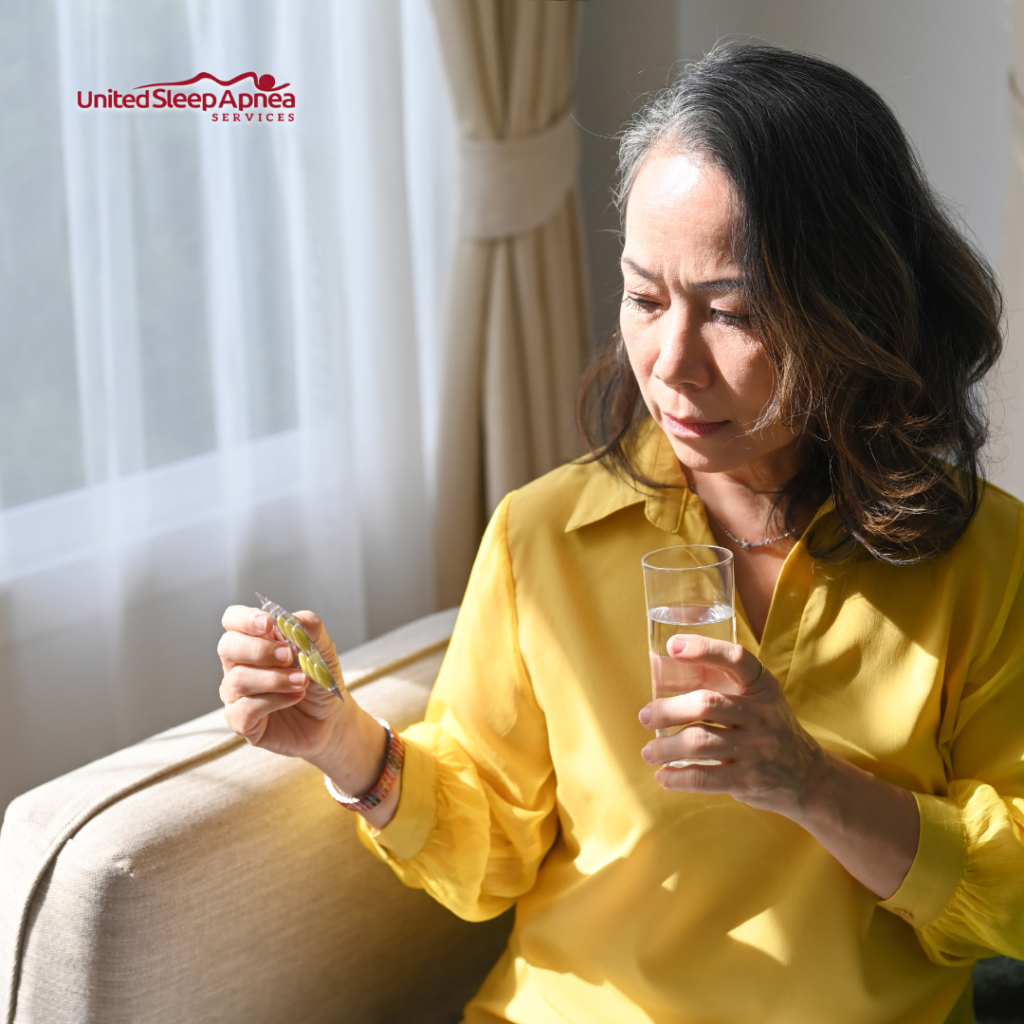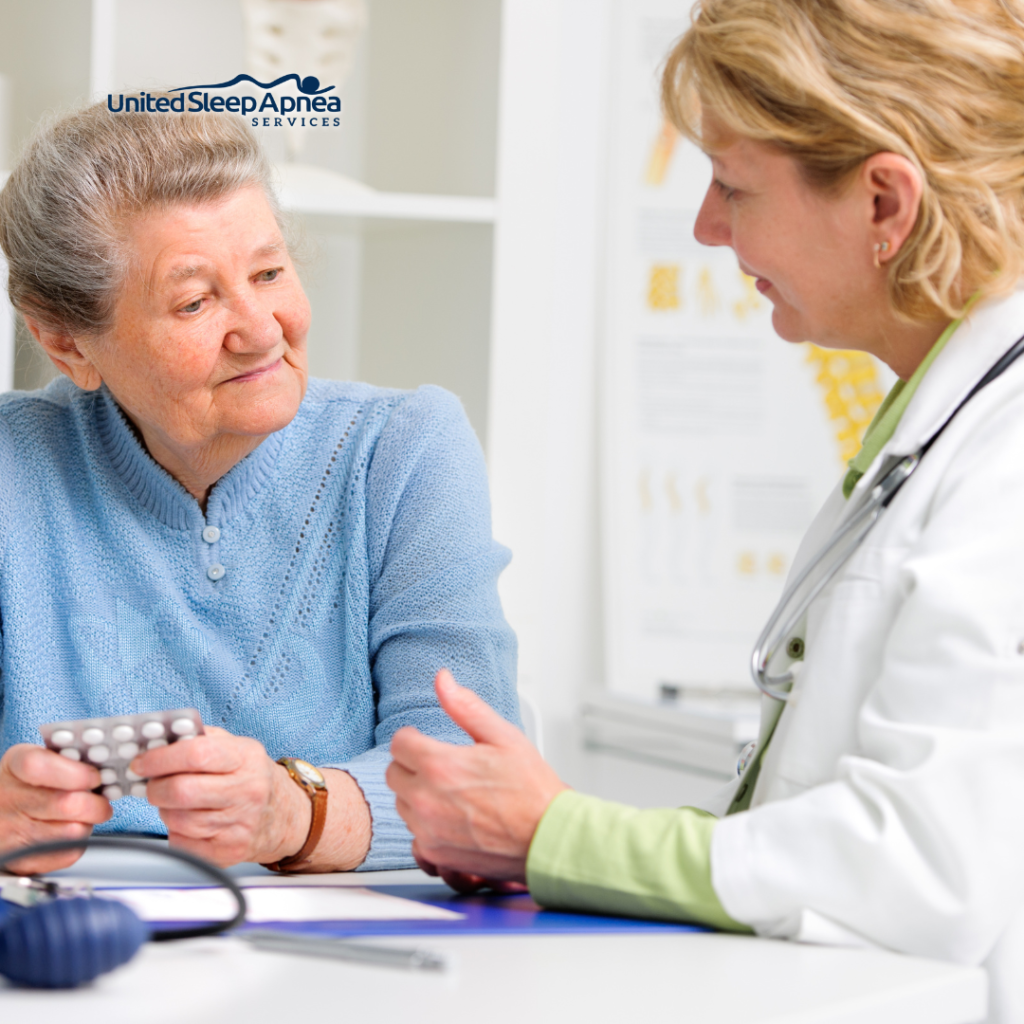You might think that a good night’s sleep is nothing but a dream once you reach a certain age. A lot of women experience sleep problems during perimenopause – a period before menopause when hormone levels and menstrual periods become irregular.
Our moms and grandmothers called it the change of life, which dreaded the age of hot flashes and bad mood swings and the unofficial start of middle age. More women expect those unwelcome symptoms during menopause.
It is the time that marks the end of the menstrual cycle, which is diagnosed after you’ve gone 12 months without a menstrual period. Menopause can happen in your 40s or 50s, but most of the time in your 60s. This stage is said to be a natural biological process.
Here are some symptoms you can consider if you’re turning into the menopausal stage:
- Hot flashes
- Chills
- Irregular periods
- Vaginal dryness
- Night sweats
- Sleep problems
- Mood changes
- Thinning hair and dry skin
- Loss of breast fullness
- Weight gain
- Slowed metabolism
These symptoms, including changes in menstruation, are different for every woman. You’ll most likely, experience some irregularity in your periods before they end. But along with these symptoms, many women don’t anticipate the forthcoming disturbed sleep.
Sleep Apnea
Sleep Apnea is a condition in which breathing is temporarily paused or interrupted during sleep. It can present itself as snoring or gasping of breath and is generally triggered by the throat muscles relaxing too much during bedtime sleep. This results in the airway closing, which leads to the gasping sensation.
Symptoms of sleep apnea include:
- Shortness of breath
- Sore throat
- Concentration or focus-related problems
- Severe snoring
- Dry mouth after sleep
- Headaches
- Increased wakefulness
- Excessive tiredness
- Irritation
According to American Sleep Foundation, more than 18 million adults have sleep apnea. While it is more common among men, the odds of experiencing sleep apnea in women are during and after their menopausal stage. This 18 million includes one in four women above the age of 65.
There’s also high risk if you have family members with sleep apnea, if you are overweight, or if you smoke or drink.
Sleep apnea can be obstructive, central, or mixed:
- Obstructive Sleep Apnea: When your throat muscles relax too much while at sleep, the upper airway gets blocked and causes difficulties in breathing.
- Central Sleep Apnea: When the brain fails to send the right signals at the right time to the muscles that regulate your breathing, it leads to breathing troubles.
- Mixed: In special cases, some sleep apnea patients suffer from both types and end up in extended shortness of breath. This may lead to a permanent stoppage in breathing if ignored and causes the death of the individuals.
How is menopause and sleep apnea linked?
The female sex hormone, called the progesterone hormone, plays a vital role in regulating a female’s menstrual cycle. The hormone also reduces sleep for those who suffer from irregular menstrual cycles or those at their menopause or perimenopause stages.
For most women, at their menopausal stage, the levels of progesterone hormones decrease. When the hormone levels decrease, it cannot maintain the airways open and free for breathing during sleep.
This also affects the maintenance of muscle tone in the throat.

This problem, when severed, causes breathing difficulties and leads to sleeping disorders, especially sleep apnea. If untreated, sleep apnea may lead to weight gain (obesity), cardiovascular problems, and imbalanced hormone levels, leading to disrupted breathing.
Progesterone hormone, which usually protects individuals from sleep apnea, may fail to do its job during the menopausal phase or the menopausal span of years and induces the perimenopausal women to develop hot flashes and irritations, often owing to sleep deprivation.

ARE YOU MISSING OUT ON THE MOST RESTORATIVE SLEEP OF YOUR LIFE?
Reduce your daytime fatigue with the latest diagnostic testing and physician services for improved health.
Our team of experts will listen to your concerns, guide you through the process, and answer all your questions.
A WebMD featured story discusses how the hormonal changes that occur at various biological stages of a woman (menstrual cycle, pregnancy, and menopause) affect their sleep quality.
Highlighting the menopausal stage, the article discusses the progesterone hormone induces hot flashes and irritations. It also presents insights on a few pieces of research where scientists found that women who have hot flashes during perimenopause are likelier towards sleep disturbances.
It is said that about 2/3 of perimenopausal women have hot flashes and associated sleeping disorders. Studies also observed that these hot flashes mainly occur during the first half of the night’s sleep.
How can a menopausal woman get a better night’s sleep?
Exercises
Having a regular exercise schedule can help menopausal women have healthy sleep without disruptions. But ensure that you do not exercise just before your bedtime. It may lead to several imbalances in your body, which may further exacerbate your sleeping problems.
Exercising also helps reduce your depression. Weight gain or obesity may fall under control if you consistently execute your exercise plans.
Hormone replacement therapy (HRT)

HRT involves the hormone supplements given as pills, patches, or vaginal cream. It may be estrogen or progesterone hormones, or sometimes a combination of these.
HRT can improve sleep quality, though few objective differences in sleep have been observed with their use. However, the detrimental effects of hormone therapy can outweigh any benefit.
Medications
Low doses of fluoxetine, paroxetine, and venlafaxine seem to increase sleep quality.
Weight loss
Staying fit under prescribed weight ranges can help you get a good sleep balancing blood pressure and sugar levels. In contrast to a healthy condition, obesity increases your appetite even during sleep and increases wakefulness.
Either you wake up many times, or your wakefulness duration may be extended due to weight gain.
Fix your body clock
If your body clock doesn’t fit your daily schedule, change it by being consistent with the time you go to bed.
CPAP therapy
A largely recommended treatment method, especially for obstructive sleep apnea patients, is the CPAP (Continuous Positive Airway Pressure).
This method significantly relieves the subjects from the symptoms of sleep apnea.

ARE YOU OR YOUR LOVED ONES AFFECTED BY SLEEP APNEA?
Our process is designed using a patient-centered, holistic curative model that focuses on lowering costs while improving outcomes.
We serve veterans, minorities, families, and those who can’t get tests done at other facilities
Other general tips
- Avoid long naps during the daytime
- Ensure you urinate before going to sleep. Waking up to urinate sometimes makes you stay awake for a more extended period, disrupting your regular sleep-wake cycle
- Avoid spicy foods at nights
- Reduce caffeine consumption
- Try wearing natural fiber-made and loose clothing
- Make sure that your room has enough ventilation for air circulation
Sleep is Essential!
Sleep is one of life’s primary necessities. It is the only time we get to shut the world and have some peace for ourselves completely. If you’re currently facing difficulties sleeping or feeling restless despite healthy sleep (at least 8 hours every day), you may want to consult your sleep specialist.


